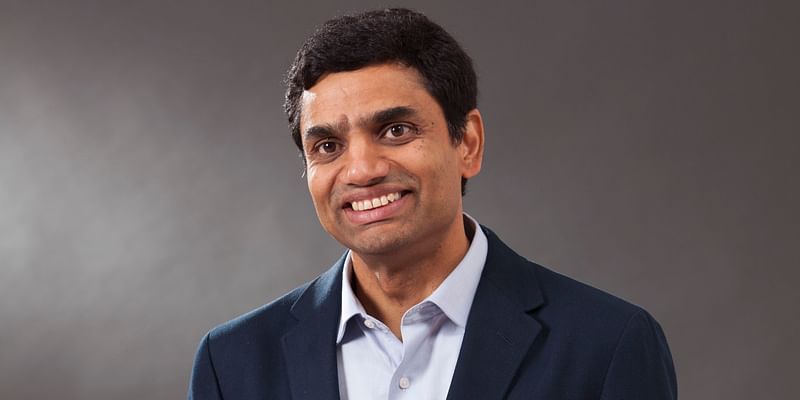The COVID-19 pandemic has hit businesses hard and has led organisations to refocus their business strategies. While the pandemic has upended lives and led to health concerns, it has pushed organisations to adopt work from home (WFH) policies to ensure safety of its employees. And this has changed the role of the office, learning, and leadership forever in the last nine months.
For Krish Shankar, Group Head, Human Resources, Infosys, this time was more about reflecting on how the present changed the learning from the past, and how the entire workforce management concept was realigned due to the pandemic.
Krish comes with nearly four decades of experience in the corporate sector. He was with HUL for over two decades and people management came naturally to him.
Krish says that while he has witnessed many instances of business downturns and business turnarounds in his career, there was no crisis like this that could prepare anyone to take it head on. However, he believes that the crisis brought people together and brought the best out in them.
In an interview with YourStory, Krish shares how IT giant Infosys managed work during the crisis, and how the present situation has changed the way of doing business in India’s IT bellwether.
Edited excerpts from the interview:

Krish Shankar
YourStory [YS]: What were the early changes Infosys made in this new normal?
Krish Shankar [KS]: Within two weeks after March 14, there was a lot of mobilisation such as sending desktops home, ensuring security, bandwidth, ensuring new policies are in place for employees to work from home, get new broadband connections, WiFi adapters, etc.
We began tracking the situation in January itself because a lot was happening in China. But it was Italy that really shook all businesses. The speed with which the virus spread was something that left many businesses in denial.
The denial then lead to a little bit of anger, which then quickly led to acceptance and then people started to plan for the changes in the nature of work.
YS: Today, the lines are blurred between home time and work time. What changes in behaviour are seeing?
KS: In the IT industry, people always have calls with clients in the US or Europe, which will be early or late in the evening. Today, many people join in to those calls because everyone is at home. Therefore, there will always be some calls where we will have to do some coordination as we work remotely.
While this is giving employees flexibility as they can take calls and also do other things at home, at the same time, there is also lack of clear boundaries between work and home. Therefore, people are saying they don’t know where it is ending, where it is beginning. At the same time, they appreciate the flexibility they have being at home with their family.
YS: How did C-Suite help in the early days of COVID-19, and what has changed internally?
KS. There was need for a lot of communication and the C-Suite set a good cadence. Collaboration is very important and we had to ensure there was transparency in what we do.
In the early stages, the leaders played a big role. At Infosys, the CEO, the COO, and all others in leadership positions spent a lot of time talking to employees and setting up calls to set a precedence for the coming year.
We set up an app called LaunchPad, which on-boarded people into the company virtually. The new employees are given the ID card via smartphones and they have the option either to come to the office or work from home. So everything was done remotely. We also have an app called the InfyMe, which manages attendance, claims, and learning.
To train employees, we have proctored tests and we have also created a lab in the cloud. So all the learning can be simulated there.
Last year, we started InfyTQ, where college students take assessment tests, and if they are good, we give them offer letters and they don’t have to go through the campus hiring process. In this new environment, we are going to take this forward to many more colleges and we can explore a new way of hiring.
YS: Is remote working more collaborative?
KS: Yes! A lot more people will be working from home in the coming years. We also believe that the role of the office is going to change. It’s not going to be a place that you go in to work, but it needs to be a place where you come to really connect with people.
In future, we will have people coming to office for one or two days a week, where they will sit together, brainstorm, and make plans. Some teams, which are early in a project, may probably meet more often and once they’re set, they could work from home.
We believe that over time, we will have a lot more people, maybe 30 percent to 50 percent of them, working from home at any particular point of time. This is called as the hybrid-remote model. And when that happens, we will need to look at how to manage such teams. For this, we will be working on three to four things.
There are some benefits out of it that we’ll explore, but there are also some things we need to do to make this new reality work well for us.
For example, virtual engagement is very important.
We have a platform called iEngage that enables managers to engage with their team by setting up meetings and track how things are going. We have trained our managers to talk to people virtually and engage them virtually because it needs a different mindset as leaders need to have an empowering mindset. It needs leaders to be more trusting and believe in delegation.
With digital collaboration, we must ensure that managers have more clarity of purpose. Infosys is built on values of ethics and governance, but how do we continue to strengthen that? And when you work remotely, you also need to tell people about the trust we have in them. We have to give them more ownership. We need to make resilient teams, so that’s the other thing that we’re working on. I think the remote working or hybrid-remote working model is here to stay.
YS:. Is the concept of real estate changing because of remote work?
KS: The real estate sector will be impacted in the longer term. About 99 percent of our workforce has been working from home during the pandemic.
So, when we talk about real estate, the question is whether there is a role for the office or not. I think there is a role for an office, but it is too early to predict whether offices are not important.
YS: Are people learning more now?
KS: The number of people who are taking certifications has doubled. Over the last six months, the number of people who took certifications doubled as compared to April. We’re moving people to getting more certifications on digital skills like cloud, analytics, consumer facing digital experiences, etc. We have now created about 36 skills and have created learning paths for them. These certifications will make them specialists. Apart from those who take our internal programmes, several employees are learning themselves from other sources.
YS: Mental health has become a big issue now. What are your thoughts on the same?
KS: Clearly, it is anxiety. Some people can manage anxiety and others cannot. Many employees worry about what’s going to happen. If the team doesn’t address anxiety over time, then it could lead to depression. A lot of this can be solved by talking.
And I think what we also encourage leaders to do is to spend a few minutes just asking about how the employees think and how they feel. As a team, we need to be more attentive to what is happening to our employees in terms of anxiety and depression.
YS:. How has leadership changed since March 2020?
KS: The approach has changed. Leaders have realised they can’t control everything and that they have got to empower.
Secondly, employees want leaders who are more compassionate. For example, I am connecting more with people and you know one reflects on one’s own blind spots. I keep thinking how can I change my own style and what can I do differently. The aim is to have a better impact.
Leaders look for resilience, and I think resilience has got three or four things going. Firstly, you got to understand yourself and take care of yourself. Secondly, you got to have some amount of social support. And thirdly, you’ve got to have some kind of belief that you want to get work done. The whole purpose is to make an impact and ask yourself what is it you want to do.
Edited by Megha Reddy
Link : https://yourstory.com/2020/11/remote-working-model-here-to-stay-infosys-hr-krish-shankar
Author :- Vishal Krishna ( )
November 12, 2020 at 06:10AM
YourStory


